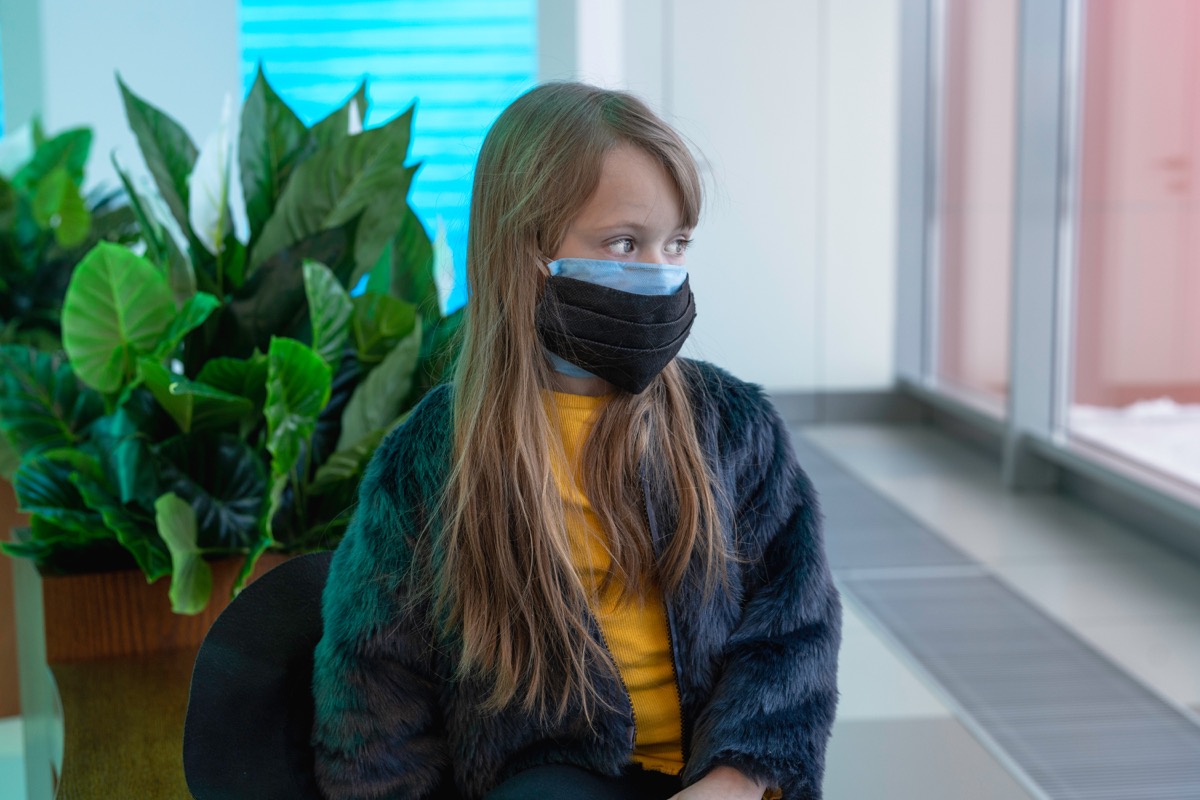The new study, published in the CDC’s Morbidity and Mortality Weekly Report on Feb. 17, examined eight Minnesota residents between the ages of 15 and 41 from mid-December to mid-January who had tested positive for the U.K.-originated B.1.1.7 variant. Researchers spoke to six of the eight patients who had become ill and all of them had traveled within the two weeks leading up to their diagnoses—three visited California, two traveled to West Africa, and one had been to the Dominican Republic. In reporting the findings, the CDC released a warning that “new virus variants that spread more easily could lead to a rapid rise in COVID-19 cases.” And for more on where the U.K. variant is spreading fastest in the U.S., check out These 2 States Are “At Risk of Being Overrun” by the New COVID Strain. The study notes that the fact that none of the patients had visited the U.K. before testing positive for the B.1.1.7. variant was a genuine cause for concern. As such, the study’s authors highlight the importance of following basic health measures to avoid a surge in cases.ae0fcc31ae342fd3a1346ebb1f342fcb “Identification of this variant in Minnesota, a variant that epidemiologic and genomic evidence suggests has increased transmissibility, highlights the importance of mitigation measures such as mask use, physical distancing, avoiding crowds and poorly ventilated indoor spaces, isolation of persons with diagnosed COVID-19, quarantine of close contacts of persons with COVID-19, and adherence to CDC travel guidance to slow transmission,” the study advises. And for more on what you should be doing at the moment, check out The CDC Says You Should Be Doing These 3 Things With Your Mask Right Now. Unfortunately, it appears that mutated strains are beginning to show up in increasing numbers across the U.S. The CDC reports that 1,299 COVID-19 cases caused by variants have been reported as of Feb. 16: 1,277 of them were the U.K. B.1.1.7 variant, which has been found across 41 states and Washington, D.C., and 19 cases reported across 10 states were the B.1.351 variant that originated in South Africa. Right now, there are only three confirmed cases of P.1., the variant that originated in Brazilian, across two states. But in order to combat the rise of such variants and know how widely spread they are, researchers need to actually be able to find them. Currently, testing centers in the United States sequence genomes from less than one percent of all coronavirus tests, The New York Times reports, meaning any current counts are likely an underrepresentation of actual numbers. And for more COVID news delivered right to your inbox, sign up for our daily newsletter. Other health experts have recently raised concerns that another variant-fueled surge in cases may be looming in the coming months. While discussing the process of reopening schools during an interview with CBS’s This Morning on Feb. 15, Michael Osterholm, PhD, a member of the White House’s COVID advisory board, issued a stark warning: “The next 14 weeks I think will be the worst of the pandemic.” He continued: “People don’t want to hear that, but if we look at what these variants are doing, particularly this one from the United Kingdom, and see what it did in Europe, see what it’s done in the Middle East, it’s now beginning to start that here in the U.S. We are going to see that unfold.” And for more on how the pandemic is already affecting where you live, check out This Is How Much COVID Is Still Spreading in Your State.



